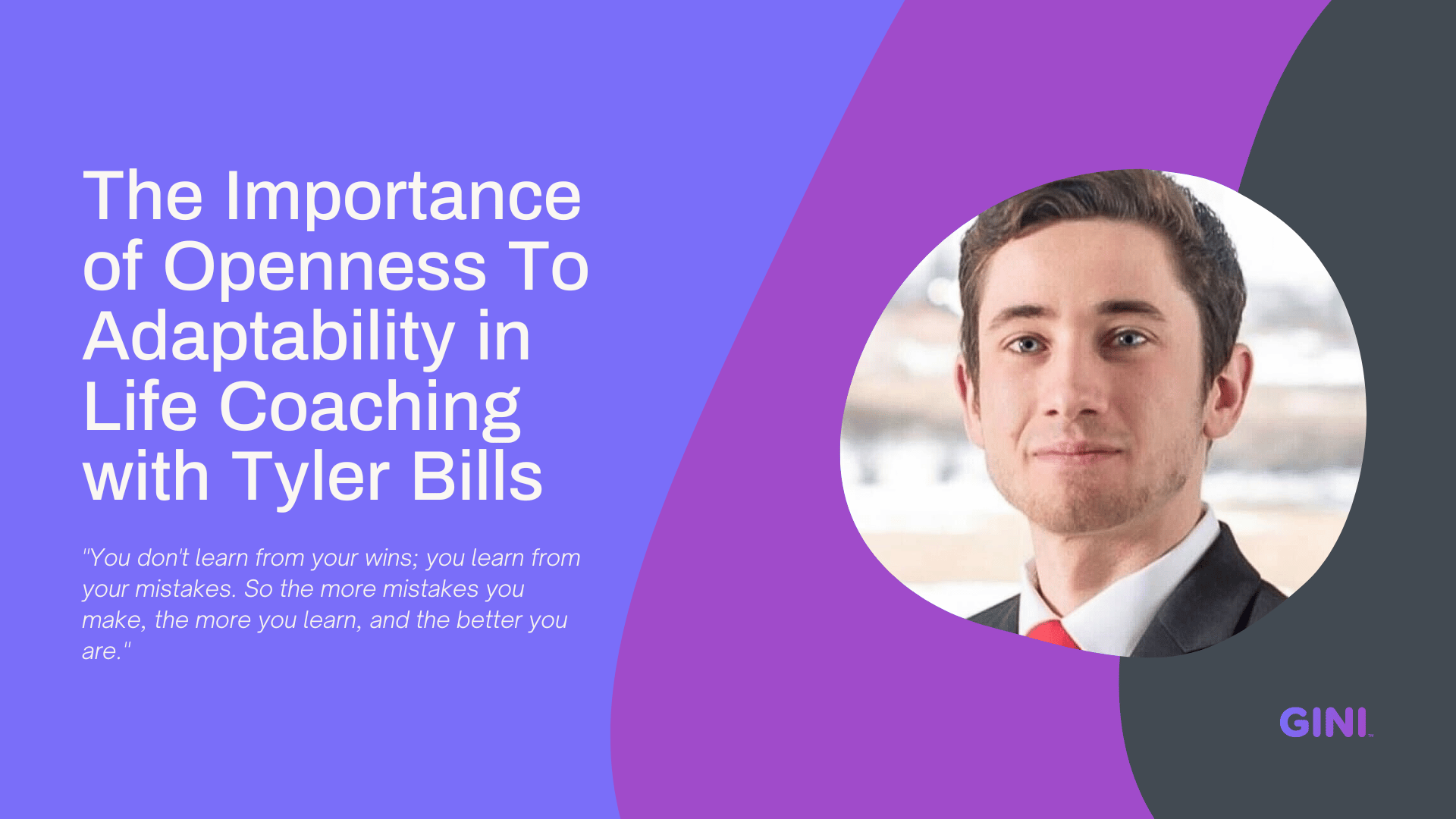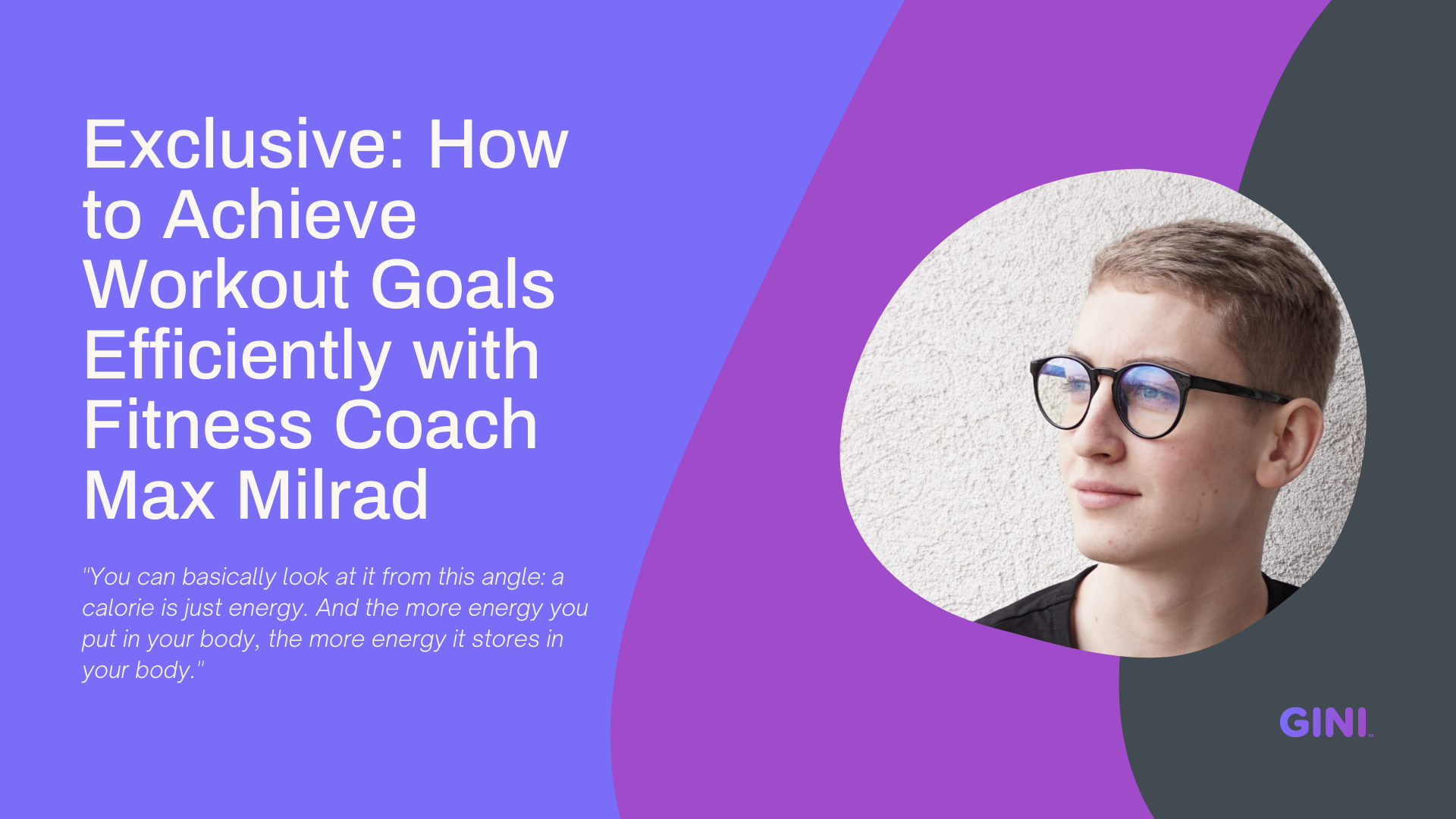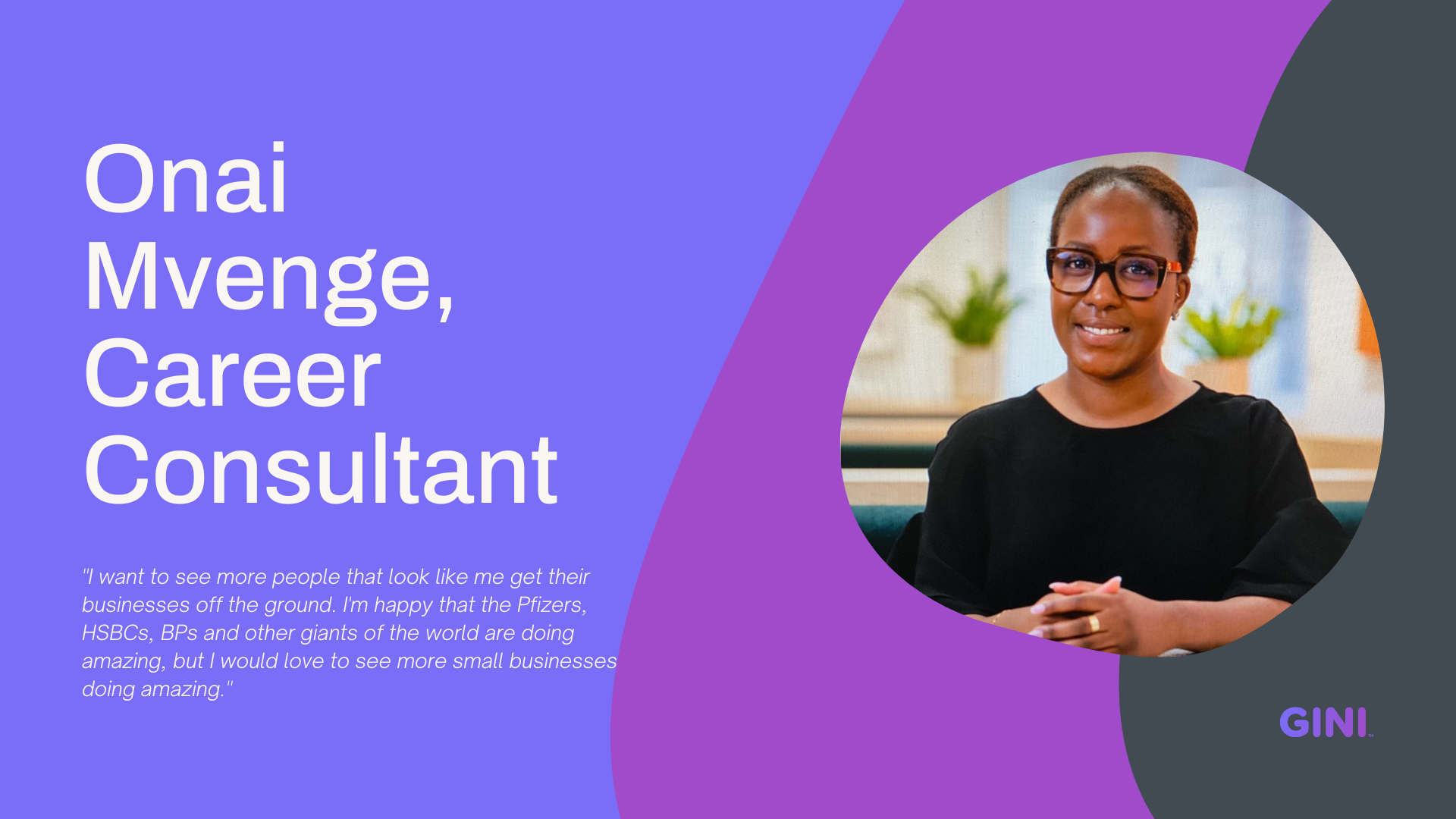Life coaching is a process in which a trained professional, known as a life coach, works with individuals to help them identify and achieve personal goals, overcome obstacles, and make positive changes in their lives. Life coaches use various tools and techniques to help their clients clarify their goals, identify limiting beliefs and behaviors, and develop strategies to achieve their desired outcomes. The focus of life coaching is on the present and the future rather than the past and is designed to help clients move forward and make progress in their personal and professional lives.

GINI caught up with Tyler Bills, a book-reading knowledge-based customizable life coach, on the importance of letting go of your personal pride and being open to improving with positive change.
Josh: Are you serving clients globally, and what has that experience been like?
Tyler: Yes, I am on a global scale. The experience has been good overall. Ultimately, the only issue I would say is when someone's seven hours ahead, it's very difficult. And this is specifically for me as a coach because I have to work, to a certain extent, around my work schedule. Just like this, I have to not schedule any meetings during this time, or I wake up really early. So that part, especially when they want to meet early in the morning, has been a little tricky. But outside of that – I think it translates across cultures. Ultimately, I think when you look at the US and the level of productivity, time management, all the things that coaching goes into, like when you look at us versus other countries, it's definitely a lot different in terms of how they act on a day-to-day basis, what their expectations are. And just being able to connect the ideas. They don't get hit with the advertising that we do at this point. So bridging that gap of, there are things out there that can help you. I think that's been the biggest couple of things.
Josh: Okay. So let me ask you, what made you initially get into life coaching?
Tyler: I wanted to be there for my younger self. If I had been given any direction at 18, I could have been twice as far as I am right now. Unfortunately, that's not the case. I already had a background in wanting to do business. I had five YouTube channels when I was 13 or 14, trying to make those happen. Ultimately that's not what worked for me. I didn't understand what it was to start doing something and do it on a consistent basis and then kind of scale that. So ultimately, it got to the point where I got into my career, I gave up on all the YouTube and extra stuff. And then in 2020, I started reading non-fiction books, and I now own like 500 nonfiction books. And really, I was like, oh, I can own a business where I help people and make the world a better place. That's my mantra. How do I help people? How can you help individuals so that you can help the greater society?
Josh: Got it. So you're essentially a voracious reader, and you've realized that there's a lot of opportunity to help people from your readings. Who is one of your favorite authors?
Tyler: I don't have favorite authors, but the number one book that comes to mind is called Mindset by Carol Dweck. It's all about the understanding that failure is a good thing, to a certain extent, because you don't learn when you win. You don't learn from your wins; you learn from your mistakes. So the more mistakes you make, the more you learn, and the better you are.
Josh: Wow.
Tyler: That's a really deep message that I think a lot of people need to understand, and it's not about being perfect; it's about getting better. That's all we can do.
Josh: So you're saying getting better versus staying stagnant or repeating the same step? And you really can't get past that same step unless you do something different. Would you say that's accurate?
Tyler: Pretty close. It's about being positive. That's really the core of the message. There's so much negativity nowadays, but negativity doesn't foster growth. Positivity does.
Josh: Wow. So you're saying that the most successful people in the world have that in common?
Tyler: Realistically, yeah. That's just why, as I said, I only have 500 books in my library. There's more that I want to get. And it's not about a single topic; it's about being able to connect things that you weren't able to connect before. I never understood that problem-solving was such a lucrative field. Just solving problems for anybody. Being able to walk someone through a process of they go and do things, they fix whatever is in front of them, versus how do we actually make a systematic approach to this? How do we make sure that we're doing the right thing? It's all connected. And really, you have a lot of people out there in the world that if they were able to learn one more thing, it could change their life.
Josh: Fascinating. So can you elaborate a little bit more on that?
Tyler: Which part?
Josh: I guess the fact that if people could change one thing about themselves or do one thing differently, even. Because I think many people get caught up in the thought that making this one change isn't going to do it. For example, going to the gym. People feel like "I'm not going to go to the gym because one day isn't going to do anything." But in actuality…
Tyler: More than that. It's bigger than that. For example, if you start going to the gym starting today, two days from now, you're able to start sleeping better, then if you're able to start sleeping better, you're able to start doing better with work, doing better with the school. It's a chain reaction.
Josh: So you mentioned problem-solving, so I guess that really comes to why people get coaching or even consulting or advisory. I would say problem-solving is at the core of why people work with people who can solve their problems. Is that something that you do in your current profession?
Tyler: Yeah. It's called Six Sigma. And it's a problem-solving methodology that walks you through each part of the problem. There are five phases, and there are different levels of problem-solving. There's your basic level that basically anybody should be able to learn. You have your medium level that starts to introduce statistics and mathematics. And then you have your highest level, which I haven't gone to yet. I don't know if I'm going to go to level three. But that's more for people who are trying to solve things on a molecular scale or on a global scale. Because each level you go up, it's more in-depth.
Tyler: It's one of those things where when I started out, I had a 25-step program that I was going to start introducing to people; that was going to be my thing. And as I got into freelance coaching through platforms like Fiverr, I realized that people aren't there. That's not what people are looking for. At least at the beginning, you might be able to get into that, but really, people are triggered to go into life coaching because there's something that, one, they've been introduced to; they know that there's somebody out there that is willing to help them and that it doesn't cost a lot of money, and then two, it's, oh, I can do something different, I want to do something different. They need to have a problem, have the want to do better and understand that there are people out there that can help them. That's really at the core of everything.
Josh: So, somebody having a need or a want, and Fiverr provides this marketplace where they can fulfill their needs.
Tyler: And the thing is that Fiverr's whole marketing platform doesn't cost a lot of money.
Josh: Right. Which is not always the best.
Tyler: That's how they started out. That's how they got people to know who they were. When you think about GINI – what is your niche? Do you need people that are willing to pay $60 an hour? From what I remember from our last conversation. Ultimately, are those people on Facebook? We need to better understand the audience that can afford that amount of money and what the problems they're having are versus the people who are coming to me on Fiverr, where their problems might be a lot simpler in comparison to the problems that someone at the $40 to $60 an hour range would have.
Josh: Right.
Tyler: So that's the other thing, realistically, when you look at GINI, you're looking at young professionals. You're looking at people who are between 20 and 30 or even later in their career, like 40 to 60, who are struggling to keep up. And ultimately, it's like, Hey, maybe we can help you put your problems in a different perspective.
Josh: Right. And a more structured perspective too. I feel like Fiverr they've been able to master the one-time, or like you said, an inexpensive way to do things or get a job done. But we're focused more on what long-term development is and what are the benefits of long-term development.
Tyler: Right. And I think one thing that you should think about in terms of GINI is how you separate yourself from an Upwork and a Fiverr. And ultimately, that's going to be strong relationships. It won't be a one-off, like, hey, you're meeting once. We've been trying to get people to sign up for months.
Josh: Thanks for the feedback. This will be a candid insight into the inner workings of growing a business and the mindset entrepreneurs must have to succeed.
Tyler: The thing is that there's a different couple of different perspectives. There's having the right mindset of you can get someone in the room. If I can get somebody on a call, I can get them to believe that they need coaching or that I can help them. So there's that part. There's also a perspective where there's going to be a lot of people that go for life coaching that only do one or two sessions because they don't understand what the work is behind it. I might be talking more strategically with them than they've ever heard before. So you need to have a mindset of being able to adapt, to be able to change. And that's really what every human struggles with – change and accepting; accept the things you cannot change and change the things you cannot accept. And that is the key. Do you want to change? If they don't want to change, then there's nothing there.
Josh: Got it. I feel like that's a good point. When you’re first speaking with a client, are there key markers, for lack of better words, that you can recognize if this will be an excellent client to work with or not?
Tyler: Yeah, a hundred percent. It starts with what level of problem they are trying to deal with? Have you ever heard of Maslow's hierarchy of needs?
Josh: Definitely.
Tyler: I start using that as a template. What level are they on? So there are five or six levels, whatever it is, and ultimately what you do as a coach, or what they need as a client, changes based on where they're at in their life. If they're in an apartment – and this is just an example; if you have someone from a very low-income area, a low-education area, they're going to have a lot of different things that they need to learn and go through to get to their next level, versus someone who comes from a higher income area, higher education, where maybe their issue is that they want to go from professional to manager. It really depends on the situation. And I think that's really where life coaching does need some sort of, hey, if I am in this situation and this is what I want to get better at, I go to this guy, versus I'm in this situation because there are generic buckets that you can group people into, however, there's so many that it would take a lot of research and development to understand if somebody's at this point in their life and they want to get from point A to point B. First of all, they need to understand that they can't jump from level one to level five; that's not possible. You need to actually follow some sort of process.
Josh: Right. Very interesting. So many people think that they can jump from level one to five. It does not happen overnight. Got to follow the process, okay? And what is your process like, when working with clients?
Tyler: Depends on the client. Once again, depending on where they're at. So, as I said, I started to put together a 25-step program. And that's just not realistic. It's not something that anyone who jumps in is going to be like, oh, if I learn these 25 things, I'm going to be killing it. It's not the case. I've had clients that are struggling with a relationship with their friendship – not like boyfriend-girlfriend, but just their internal friend group, being able to understand their emotions. The one thing about life coaches is that we provide an intermediary between not doing anything – or, realistically, a counselor who's just there to listen. You have us, we're listening, but we're also there to give you some feedback. And then you have the next level up of like a therapist and then psychologist in terms of the different ways people can pick up a person to talk to. So the process depends on the person. I keep a sheet to start with. I say, Hey, here are the questions I need to ask them over the course of the first two meetings to understand where they are and where they want to be. But after that, it really just depends on the person because everybody goes through the process at a different pace.
Josh: Okay. Very interesting. So after those first two sessions, would you say, on average, that's when the real work begins? Or rather, are you just guiding people to take those next steps?
Tyler: No, the first session is getting a holistic view. You build that camaraderie; you make them understand that I'm here for you, and it's all good. And then after that, it's, once again, what are the problems you have? What do you think the prioritization should be? What's your top 1, 2, or 3? Some people do know, and some people don't. Some people have no clue. But I think it really comes down to helping them identify – you told me this and this. Do you think that this is more important right now, or do you think that it is more important right now? And talking it through with them because, ultimately, part of life coaching, in my opinion, especially at those lower levels, is about questioning them in a genuine way. Do you think that this is the best thing to do right now? Or do you think that there's another option that might help you get to where you need to be? And just acting as a buffer or a filter, basically, to make sure that this is what this person's focused on right now, this is what the problems are. Okay, well, we all have a million problems; which one are we going to focus on? Helping provide that context for people is really what it's all about.
Josh: Okay. Nice. I think this interview will be very informative to the readers, specifically ones who are considering life coaching services.
Like what you read? Receive your own customizable book-knowledge-based life coaching services with Max through GINI.
GINI: Get Expert Advice On The App Store
Additionally, cover the rest of your life advice needs with various other GINI providers through the app's AI-targeted conversation chat feature to discover more hidden GINI value.
Explore your life's various outlets by downloading the GINI Advice Platform App on the App Store or Google Play Store. Video & text-based advice chat selection options are available on a first-come, first-serve basis. The GINI Group, 2023.
GINI: Get Expert Advice On The Google Play Store
Have a similar story? Sign-up to become a GINI provider
Provider Signup - Login Page The GINI Group, 2023






